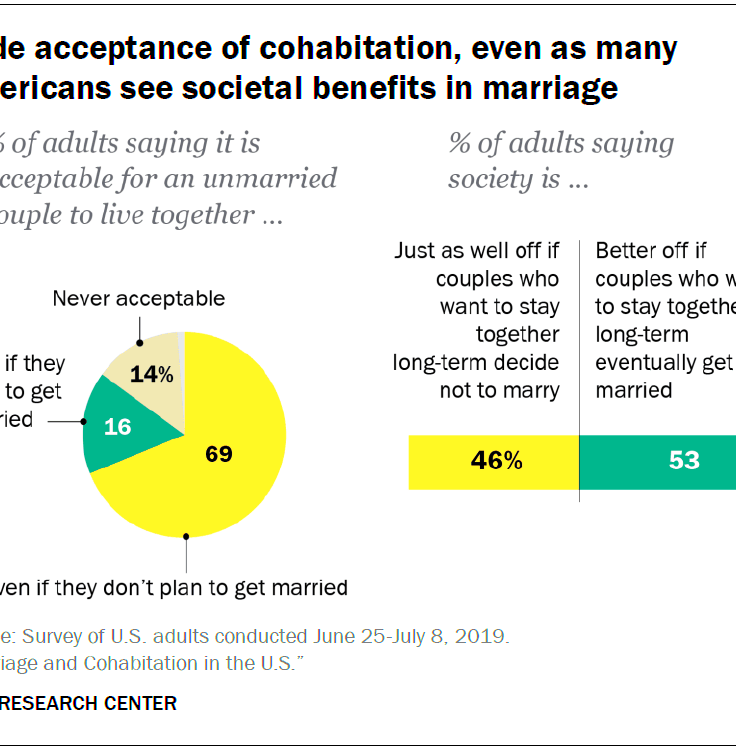Understanding Cohabitation Rights in Kansas
Cohabitation in Kansas raises issues regarding rights and responsibilities that may not be as clear cut as they are for married couples. The legal framework surrounding cohabitation can be quite intricate, especially if you’re new to the state or not well versed in the laws. I recall my experience when I first relocated to Kansas trying to navigate through these complexities felt like solving a puzzle. It’s essential to understand cohabitation rights for anyone living with a partner without tying the knot. This knowledge helps you clarify your legal standing and make informed choices about your shared life together.
Legal Definition of Cohabitation

In Kansas cohabitation typically means a couple sharing a home in a committed romantic relationship without tying the knot legally. While there isn’t a definition in the law cohabitation is usually interpreted in different contexts like family matters and property disagreements. This absence of a definition can result in misunderstandings and differing views on legal issues.
Under Kansas law, the definition of cohabitation generally refers to:
- Shared residence: Both partners live together in the same household.
- Emotional and financial interdependence: Partners often share financial responsibilities and have a close personal relationship.
- Intent to maintain the relationship: There is usually an intention to maintain the relationship in a committed manner, similar to a marriage.
Rights and Responsibilities of Cohabitants
In Kansas people living together have a distinct set of rights and obligations that can resemble those of married couples though they don’t come with the same legal safeguards. Let’s take a closer look at what this means.
- Property Rights: Without a formal marriage, property rights can be complex. Typically, any property purchased individually remains the sole property of that partner. Jointly acquired property might require legal action to divide if the relationship ends.
- Financial Responsibilities: Cohabitants are responsible for their own financial obligations unless they have legally entered into agreements outlining shared responsibilities.
- Legal Protections: Unlike married couples, cohabitants do not automatically have spousal rights such as inheritance or medical decision-making powers. Creating legal documents like wills or powers of attorney can help address these gaps.
- Child Custody: If the couple has children, the rights and responsibilities concerning custody and support are generally treated similarly to those in marital situations. Courts will focus on the best interests of the child.
My personal encounter with the laws in Kansas regarding living together was quite revealing. While chatting with friends I noticed that a lot of them were not aware of the restrictions and complexities involved. Its crucial to tackle these matters in advance to prevent any unexpected surprises later on.
Property Rights and Asset Division
In Kansas the situation regarding property rights and asset division for cohabitants can be quite complex. Unlike married couples who have established legal guidelines for dividing their belongings in case of a breakup those living together without tying the knot must approach this matter carefully and with foresight. I can relate to this from my own experience as I recall feeling puzzled about how my possessions would be split up if my relationship took a turn for the worse. Its a situation that many people encounter and being aware of the legal aspects involved can have an impact.
Here’s a breakdown of what to consider:
- Individual Property: Any property acquired by either partner before or during the relationship, if purchased in one’s name alone, generally remains the sole property of that individual. This includes items such as real estate, vehicles, and personal belongings.
- Jointly Acquired Property: Property bought jointly or acquired together during the relationship may be subject to division. However, the process can be complicated without a legal framework. It often requires negotiation or legal intervention to ensure fair division.
- Legal Agreements: Creating a cohabitation agreement can help manage expectations and provide clarity. This document can outline how property and assets will be divided if the relationship ends, thus avoiding lengthy disputes.
My friends frequently joke about how they wish they had been aware of these legal complexities before cohabiting. Its a realm where seeking legal counsel in advance can prevent a lot of emotional turmoil and misunderstandings down the line.
Legal Protections for Cohabitants
In Kansas the legal safeguards for those living together are not as strong as those for married partners. This can make people feel exposed particularly regarding matters such as inheritance and medical choices. Having gone through these challenges personally I understand how vital it is to recognize these shortcomings and take measures to address them.
Here’s what you need to know:
- Inheritance Rights: Unlike married couples, cohabitants do not automatically inherit from their partner. Without a will, your partner has no claim to your estate. It’s essential to draft a will and other estate planning documents to ensure your wishes are honored.
- Medical Decisions: If your partner becomes incapacitated, you may not have the legal right to make medical decisions on their behalf. A healthcare power of attorney can be a lifesaver in such situations, granting you the authority to make important decisions.
- Legal Agreements: Drafting cohabitation agreements or domestic partnership agreements can provide some level of protection by legally defining the relationship and setting out rights and responsibilities.
Based on what I’ve seen having these papers ready can really change the game. It’s all about protecting your rights and having a solid strategy in case things don’t unfold as you hoped.
How Cohabitation Affects Child Custody
Cohabitation brings its own challenges when it comes to custody arrangements. In Kansas the legal framework, similar to other states, prioritizes the well being of the child which can add layers of complexity for parents living together. Having experienced a situation myself I empathize with the emotional and legal hurdles that come into play.
Here’s a closer look:
- Custody Determinations: Courts prioritize the child’s well-being and stability. Cohabiting parents, like married ones, must demonstrate that their proposed custody arrangement serves the child’s best interests.
- Parental Rights: Cohabitants who are not biologically related to the child may face challenges in securing custody or visitation rights. Establishing legal parentage through court proceedings can be necessary.
- Child Support: Both parents, regardless of marital status, are typically required to provide financial support for their child. Child support agreements and arrangements will be assessed based on the needs of the child and the parents’ financial capabilities.
In my social circle I’ve witnessed the significance of cohabiting parents defining their roles and responsibilities. Having legal agreements in place and maintaining communication with your partner can ease the journey and keep the focus on what truly matters—the well being of the child.
Differences Between Cohabitation and Marriage
Grasping the distinctions between living together and tying the knot can be quite revealing, particularly in a state like Kansas where the laws vary. Drawing from my own experiences and numerous discussions with friends I’ve realized that navigating these nuances can be akin to balancing on a rope. Each type of relationship comes with its own set of characteristics and being aware of these differences can assist in setting realistic expectations and steering clear of potential legal challenges.
Lets take a closer look at living together versus getting married.
- Legal Status: Marriage confers a wide range of legal rights and responsibilities, including inheritance rights and spousal privileges. Cohabitation, on the other hand, does not automatically grant these rights, which can leave cohabitants in a legally vulnerable position.
- Property Rights: Married couples generally have clearer paths to dividing property, especially in the event of separation. Cohabitants may face more complex challenges in asset division unless they have specific legal agreements in place.
- Health and Medical Decisions: In marriage, spouses often have the legal authority to make medical decisions for one another. Cohabitants might need to establish these rights through legal documents like a healthcare power of attorney.
- Social Recognition: Marriage is widely recognized and often comes with social benefits and recognition, whereas cohabitation may not always be as socially acknowledged or legally supported.
Based on what I’ve seen, it’s evident that grasping these distinctions can aid you in making wise choices and safeguarding your relationship legally in a manner that aligns with your requirements.
Steps to Protect Your Rights as a Cohabitant
Safeguarding your rights as a partner can be quite a challenge, especially when the legal landscape isn’t as clear cut as it is for married couples. I recall the moment I discovered the shortcomings in legal safeguards for cohabitants and how daunting it was. Nevertheless by being proactive you can greatly enhance your ability to protect your rights and ensure that your relationship is well protected.
Here are some practical steps you can take:
- Create a Cohabitation Agreement: Drafting a cohabitation agreement can help outline your rights and responsibilities, including how assets will be divided and how financial obligations will be managed. It’s a crucial step for clarifying expectations and avoiding disputes.
- Establish Legal Documents: Important documents such as wills, powers of attorney, and healthcare proxies can provide legal protection and ensure that your wishes are honored in case of illness or death.
- Consult a Legal Professional: Speaking with a lawyer who specializes in family law can provide personalized advice and help you understand the specific legal implications of your cohabitation arrangement.
- Discuss Financial Responsibilities: Openly discussing and agreeing on financial responsibilities and contributions can prevent misunderstandings and ensure that both partners are on the same page.
Throughout my personal experiences these actions played a role in bringing clarity and peace of mind. By taking these steps in advance one can navigate through challenges more smoothly and foster a positive relationship.
FAQ
What is a cohabitation agreement?
A cohabitation agreement is a contract that specifies the rights and duties of partners living together. It addresses issues like how to divide property, handle financial responsibilities and deal with other significant matters. This agreement serves to avoid conflicts and establishes a structure for navigating your relationship.
Do cohabitants have inheritance rights in Kansas?
In Kansas, living together does not grant automatic inheritance rights unless stated in a will or estate planning papers. To make sure your partner inherits from you, it is crucial to draft a will and other necessary legal documents.
How can cohabitants secure medical decision-making rights?
People living together can ensure that their partner has the say in medical decisions by setting up a healthcare power of attorney. With this legal paperwork you can appoint your significant other to make healthcare choices on your behalf if you are unable to do so.
How does child custody work for cohabitants?
When it comes to custody matters for couples living together the decision is made with the childs best interests in mind, just like it is for married couples. The courts will consider different factors to establish custody arrangements and make sure that the childs needs are taken care of.
Conclusion
Navigating cohabitation rights in Kansas can be a challenge, akin to untangling a necklace but with the right approach it’s manageable. Based on my experiences and those of friends who’ve been through this journey I’ve realized that being proactive is crucial. Making sure that you and your partner have agreements, legal documents and a solid grasp of your rights can really make a difference. It’s not solely about safeguarding assets or dealing with matters; it’s also about ensuring that your relationship is upheld and respected by the law. By taking these precautions you can spend more time nurturing your relationship rather than stressing over potential legal complications.


